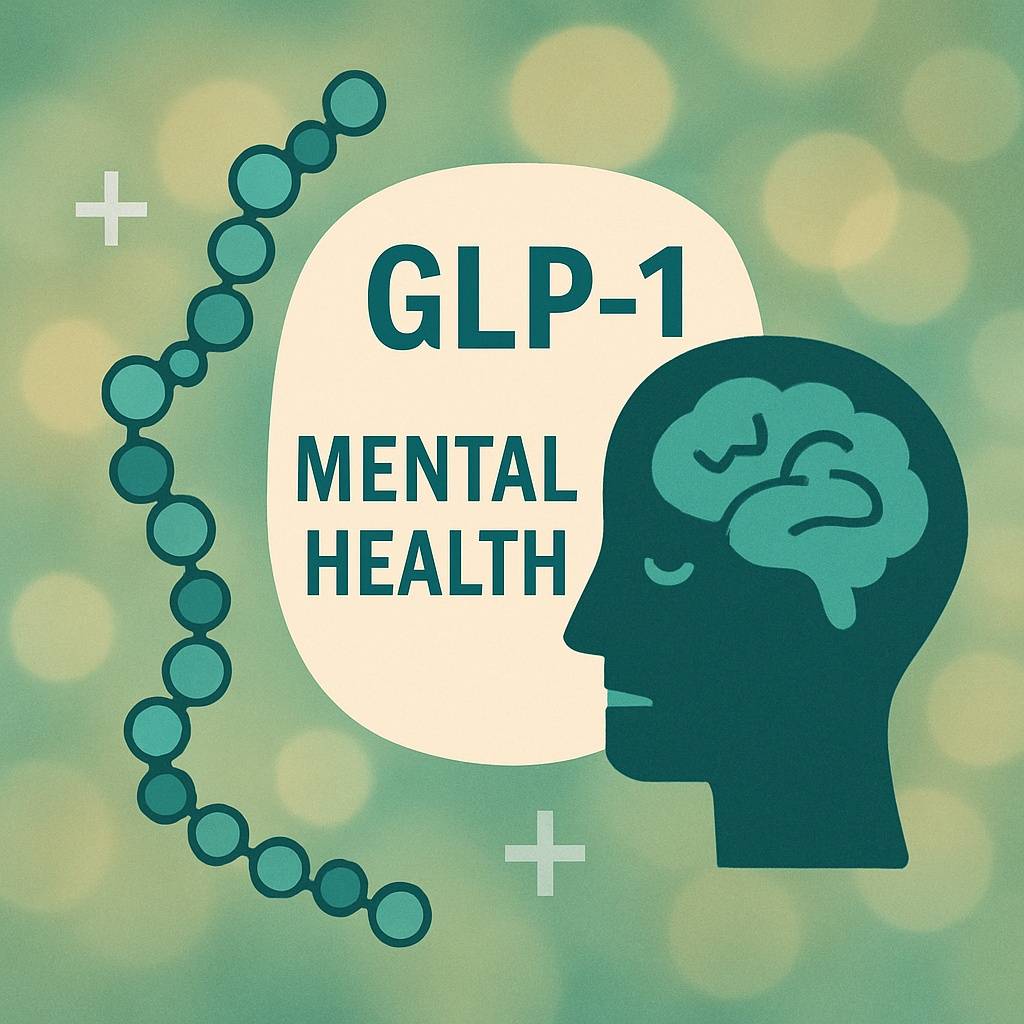Mental health outcomes in obesity interventions with GLP-1 receptor agonists: is it similar to other obesity interventions? A narrative review with systematic evidence synthesis


The CNP GLP-1 & Mental Health Research Category features studies examining how Glucagon-like peptide 1 receptor agonist (GLP-1RA) used for diabetes and obesity may affect mood, quality of life, emotional well-being, and eating behaviors in individuals undergoing treatment. This category includes research investigating psychiatric outcomes, such as changes in symptoms of depression, anxiety, and eating control, both positive and negative, following GLP-1 therapy. It also highlights studies on these agents’ potential roles in treating overlapping mental health and eating disorders, as well as their psychiatric safety profile and the need for ongoing clinical attention. Become a CNP Library Member to learn more.

Obesity is an escalating health issue and a recognized risk factor for binge eating disorder (BED). BED is characterized by episodes of overeating accompanied by a perceived loss of control, which frequently results in psychological distress. In certain cases, pharmacological interventions may be suggested to manage depressive symptoms and facilitate weight loss. Liraglutide, a glucagon-like peptide-1 (GLP-1) analog, acts by targeting the brain's reward system to alleviate psychological stress and promote satiety. Despite its potential benefits, there exists a gap in research regarding the application of liraglutide for individuals suffering from both obesity and BED. This qualitative study aimed to examine how patients with these coexisting conditions experience treatment with liraglutide. A qualitative methodology was employed, utilizing individual semi-structured, in-depth interviews. Eight participants aged 25 to 60 years were recruited for the study, and the collected data were analyzed using systematic text condensation. Two primary themes emerged from the analysis, each accompanied by three subthemes. The first major theme identified was: The role of food in the manifestation of BED, with subthemes including: Food as an emotional regulator, Persistent preoccupations with eating and dieting, and Emotional and situational triggers for binge eating. The second major theme was: Experiences with liraglutide in managing BED, which included subthemes such as: Addressing emotional and physical needs, Mitigating thoughts about food, and Reducing triggers for eating. Furthermore, the informants reported that their experiences with liraglutide (main theme 2) influenced the expression of BED (main theme 1), indicating that liraglutide had a significant impact on their BED symptoms. The findings suggest that patients with obesity and BED perceived liraglutide as beneficial in fulfilling their emotional and physical needs, thereby enhancing emotional well-being, social interactions, and overall quality of life. Additional qualitative research is warranted to investigate the long-term effects of liraglutide on emotional and behavioral changes within this demographic. [NPID: Binge eating, BED, emotional well-being, QOL, behavior, GLP-1]
Mental health outcomes in obesity interventions with GLP-1 receptor agonists: is it similar to other obesity interventions? A narrative review with systematic evidence synthesis
Discontinuing glucagon-like peptide-1 receptor agonists and body habitus: A systematic review and meta-analysis
World Health Organization guideline on the use and indications of glucagon-like peptide-1 therapies for the treatment of obesity in adults
Patient experiences with Liraglutide for obesity and binge eating disorder–A qualitative study
The effect of GLP-1RAs on mental health and psychotropics-induced metabolic disorders: A systematic review